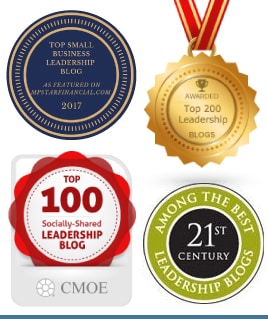We are all familiar with the expression ‘you can lead a horse to water but you can’t make it drink’. But it can be easy to forget that the same ethos applies with people i.e. it is so much more difficult (and less effective) to make people do things against their will.
Often it can seem easier to just ‘tell’ people to do what we want, or even force them. Particularly commonplace in performance management conversations are statements like – “You are doing X and I need you to do Y, so you’re gonna do it right? …right?”
Responded to with silence, or worse, passive aggressive behaviours, as leaders we must be particularly wary of slipping into this sort of one way conversation.
The Importance of ‘Why’
We can spend inordinate amounts of time and energy telling people what they need to do and how to do it. But the true gem in the puzzle is the why.
Most leaders do not pay enough attention to the why – i.e. why this person or group of people should change the way they currently do something, why he or she should take up the charge on the company’s latest strategy, or why they should do something, anything, you want them to do.
It is a simple enough concept, but we are often left perplexed when those we manage or lead (or our colleagues) do not achieve or behave in the way we want them to.
The why is what gets people moving.
And, the why is what keeps them going when the going gets tough.
It is about ensuring they (not you) connect to the WIIFM (what’s in it for me). The why speaks to the energy and motivational aspect of change or action.
In some cases, simply spelling out the consequences of not doing something is enough. Ultimately though, if we don’t pay attention to the why behind the action, any obstacles that subsequently ensue can bring progress to a grinding halt.
Be Clear
Before delving further into the why with a person or group, ensure you are on the same page regarding the desired outcome.
The most effective way to do this is by asking them to describe to you what they think the most successful outcome is.
Then, explore together all the potential obstacles i.e. what will get in the way of X happening? Sometimes, just outlining and being prepared for what can go wrong is enough for us to lower our fears about getting started.
5 Ways of Exploring the Why
Here are my 5 most useful questions and phrases to raise awareness of the why before moving into action mode.
1. What is the drive for you?
2. If you can’t achieve X, what will that be like?
3. What effect does that have? (on you/others/the organisation?)
4. Why is this important?
5. What really matters to you (and/or others) about this?
Then, ask yourself the following questions:
Is the individual connected to the topic, the goal or the outcome?
Is it relevant to them and to the organisation?
What else do they need to know about the impact of that behaviour?
So, the next time you talk to one of your team about changing their behaviour, check they have the why firmly in hand. The actions which follow may just be exactly what you were looking for.
As one of the pioneers of modern day coaching, Sir John Whitmore, so simply spelt out, “When I want to, I perform better than when I have to. I want to for me, I have to for you. Self motivation is a matter of choice.”






[…] See here for understanding the importance of why. […]
[…] what fuels their motivation to change. And motivation is the powerful engine which drives it. See here for what I […]
Excellent advice!
Thanks Jimmy!